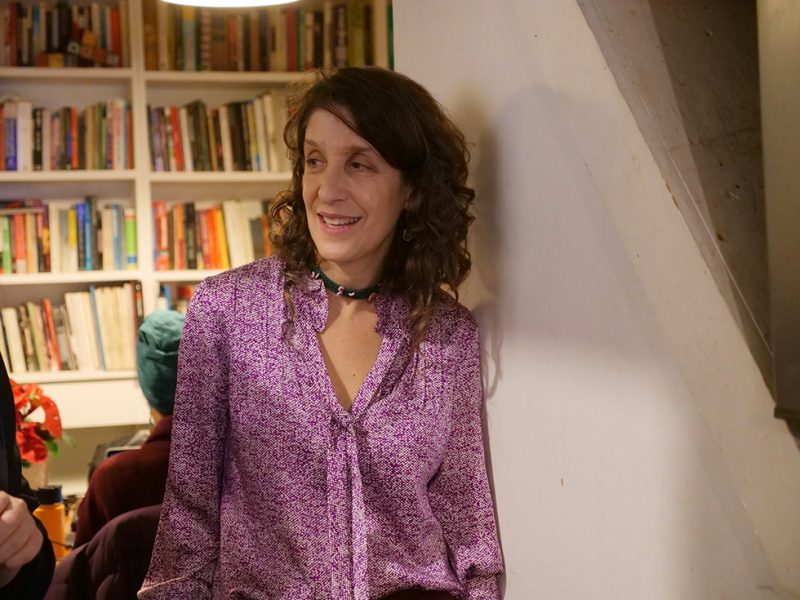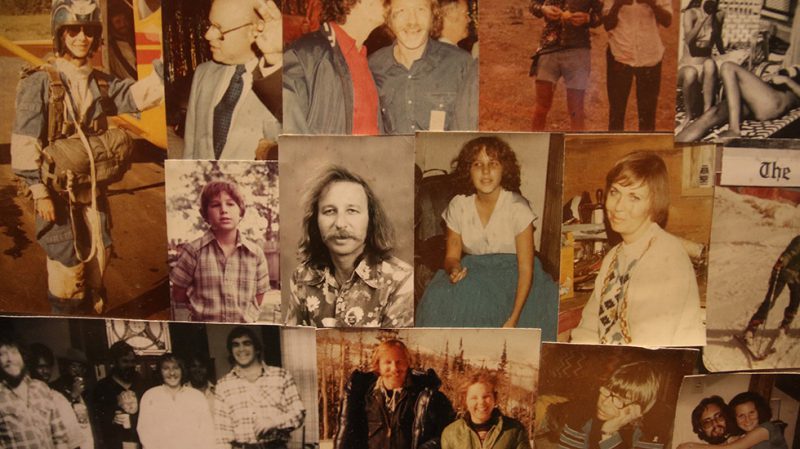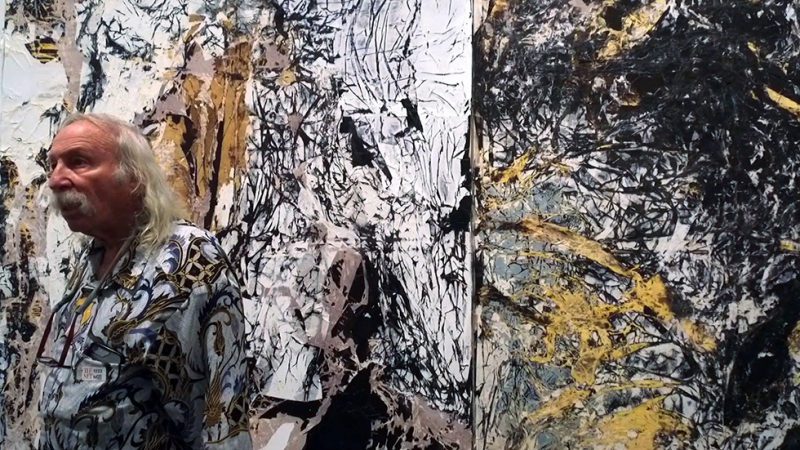
Ynet
“Coming Back to Father’s House”
by Amir Bogen
English translation by Nir Zats
February 14, 2020
https://www.ynet.co.il/articles/0,7340,L-5677686,00.html
For more than 30 years the Jewish filmmaker Lynne Sachs followed her father with her camera. Her father is Ira Sachs Senior, the lauded, and hedonistic Real Estate entrepreneur. From this intimate footage grew her last film, which combines memories, discoveries of siblings and a self examination of her family and herself. In an interview before her NY premier, she shares her personal doubts and her timid feelings regarding the film’s revealing quality. In this interview, she also discusses the documentary she made in Israel about Revital Ohaion who was murdered in a terror attack in 2002.
For more than three decades filmmaker Lynne Sachs have been making experimental documentaries. Her films that deal with political conflicts, social and personal matters took her to various places in the US, Bosnia, Vietnam, and Israel. However, throughout that period, 59- year-old Ms. Sachs kept working on a film that was most close to her heart: an intimate documentary that deals with the story of her father Ira Sachs Sr.
After the premier of “Film About a Father Who” at Slamdance in Park City, Utah, which occurs concurrently with the famous Sundance film fest, the film travels to Sachs home, New York City, where it will screen on Friday at the Museum of Modern Art. “As I stand shortly before the film’s first NY screening, among my community, I still think ‘have I made a mistake?’. Said Sachs in an interview before the film’s NY premier.
In her new film, Sachs provide the audience with an almost unmediated point of view into her family cell. A nuclear cell that sprawled with her father’s sexual adventures. In an attempt to capture the character of Sachs Sr. who had a reputation of a unique entrepreneur with a hedonistic lifestyle and of being a womanize. She digs into her memories, her mother’s, her father’s lovers, and that of her eight siblings from several women. She includes her brother Ira Sachs the well known film director (Love is Strange, Frankie), and her sister the writer Dana Sachs. The film that was constructed among others from a vast home video archive is a portrait of a man with lust for life. A man that inspired but also hurt many around him. Through her loving and compassionate look, Sachs weaves the perspectives of her close relatives, including some she discovers while making the film. She collects pieces of memories in an attempt to create the figure of her father. Ira Sr. is still alive, but being in old age his health deteriorates. He has difficulties to speak and difficulties to remember.

“I walked the path of this film most of my adult life. Eventually I had to either accept it or forget about it”. Sachs explains. “If you don’t write a diary, poetry, or other kind of documentation, you basically advocate intentional obliviousness. Most of us do it very well”. Those were the motives that kept her committed to this project for so many years. “Either you speak out or you repress. The easy way is to ignore. I have two sisters whom I haven’t met till a few years ago. One of them was very involved in my father’s life. The film gives them a space to express their point of view. We all have step siblings. The nuclear family became a more rare thing nowadays with DNA support. My film is not about DNA, rather it takes place in a society where secrets are harder to keep”.
The Family dynamic around your father is very complex, and it brings some strong, mixed emotions, from your family and from yourself.
“I have been working on this film about my father for 30 years. I didn’t know exactly what I’m doing. But I knew it had a strong presence in my life. It was the starting point to start deciphering our parental fingerprint. No matter how unstable or complicated they were, or if they were awful and you disengaged from it in adolescence, and if so does if it had a positive effect on your life.
The last few weeks after completing the film, I had come to the realization that the frame of contemplating other people’s lives opens a door inwards. I felt the need that this time my door will open within. In order to see how it feels to be watched. As I myself watched my family and myself. This is one of the special merits that cinema possesses. When you carry a camera in public everybody is looking back at you.
The film also shows the process of an active man getting old. It is not an easy experience.
Cinema has the possibility to allow us to process things unlike any other medium. My father is getting old along the film, but so do I, and so all the other characters in the film. We are all getting old. Unfortunately, in our society it is common to hear “you don’t look your age’. It became an antonym to success. The truth is that we do get old. However, cinema launches you backwards and forwards into somebody else’s life, or your own, to parallel or different periods in life. Nowadays, my father is quite frail and has a hard time articulating his words. However, I didn’t want the film to be about that, rather I wanted the film to focus on the access and repulsion from the memory itself.

The biography of Ira Sachs Sr. Is full of twists and turns even from his childhood. He was born to an American parents from Jewish heritage, and grew up with his mother and stepfather. Both were converted to Christianity after WWII. As he got older, he promoted large scale developing projects for wealthy investors. He alway kept time for hiking and exclusive clubs. His first wife gave birth to his first three kids: Dana, Lynne and Ira. During his marriage and after his divorce, he conducted multiple relationships with different women with whom he brought more children. Not a role model father figure with American values. Not to mention Jewish ones. Nevertheless, Lynne says that Jewish identity was present from an early age, and she has made a few films exploring Jewish themes. Biography of Lilith (1997), The Last Happy Day (2009), and States of Unbelonging (2005) about Revital Ohaion who was murder in a terror attack. (Source: diesem Link)
States of Unbelonging was screened in 2006 at the Jerusalem Film Festival. The film is an attempt to decipher the character of Ohaion who was a film teacher. She was murdered with her two sons by a Palestinian terrorist in her house on kibbutz Metser. An article in the NY TImes ignites Sachs’s interest and sent her to explore the death of a woman in the other side of the globe, a process that Sachs describes as an obsession. She creates an abstract portraits of Ohaion with letters correspondence with her Israeli student Nir Zats. While Sachs is drawn deeper into the character of Ohaion, Zats was providing her with the sights and sounds of Israel. Among others she interview Ohaion’s family and ex-husband. Sachs is captivated not only with Ohioan herself but also with the landscape in which she has lived in. Eventually Sachs decided to visit Israel herself and deal with her complicated feelings.

“I was so obsessed with her” Sachs says. The subject matters that came in that film are still resonance with me. “I remember how I called Avi, her ex-husband over and over. At first it seemed he hesitated talking to me. Many things happened. I traced her younger brother here in NY. He is the one who gave me some of her home videos. He has never watched it. It was too traumatic for him. I couldn’t stop thinking about her. The only thing that disappointed me in all the erosion of working on this film was that I wasn’t related to the films she has made. It really bothered me for days. I have told myself that I must like her works. I tried to convince myself that it is all right since she was more of a teacher than a filmmaker, and I also teach film. Anyway not everything must fit. I was so immersed in seeing the world through her eyes.
Although Sachs inclines toward the personal. Her film inevitably was also part of the general political context. Different people expected her to take sides in the Palestinian Israeli conflict. “Following the making of the film I met a few Jewish American artists that were supporting BDS. I on the other hand was looking for a way to create a dialogue, and to meet with the peace support movement on both sides”. Sachs says that although she identified with Revital who was murder by a Palestinian, she was looking the complexity in the story. “When I started working on the film there was an expectation to protest the terror toward Israel. And there are different kinds of terror, military, organized and more. Eventually I was trying to avoid talking about the terror in itself”.
That must raise some questions with certain people.
When I submitted the film to the Jerusalem Film Fest, I had to coordinate the film hard copy delivery. I have called and talked to someone in the festival office. He said the jury would probably not like the film. When I was wondering why, he said that it is obviously very pro Zionists, and the jury are definitely not. When I wonder what made the film pro Zionist, he claims that the reason is that I focus on a woman that was killed in a terror attack. I said that I am searching for a more complex point of view. So he said: ok so they might like it after all. He himself was with a set of preliminary points of view about my work. When I reached the festival I was so excited. But then the second war in Lebanon has erupted. We were supposed to have a tour with the film in several places in Israel, but all was canceled. It was so disappointing.
https://www.ynet.co.il/articles/0,7340,L-5677686,00.html
